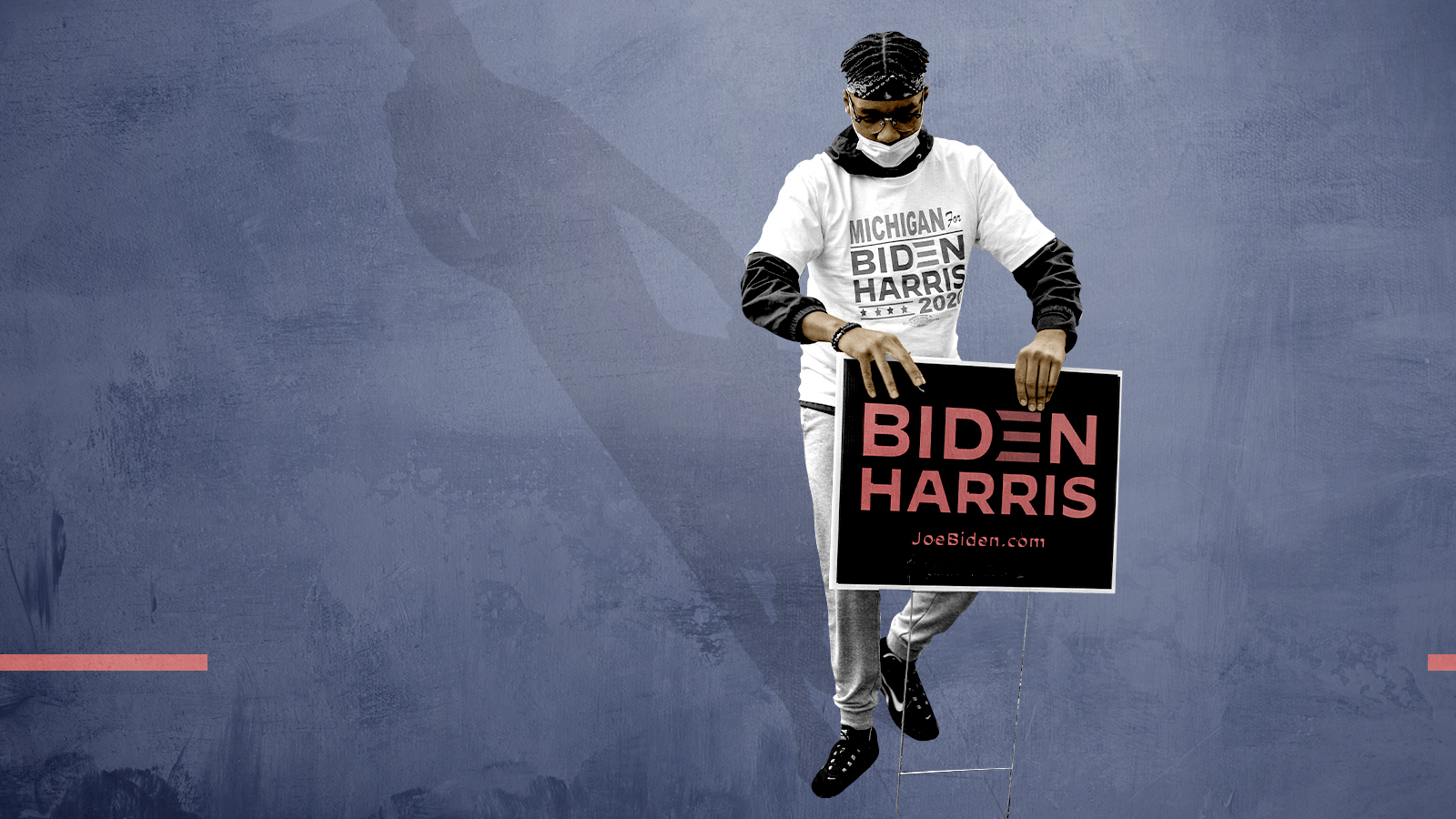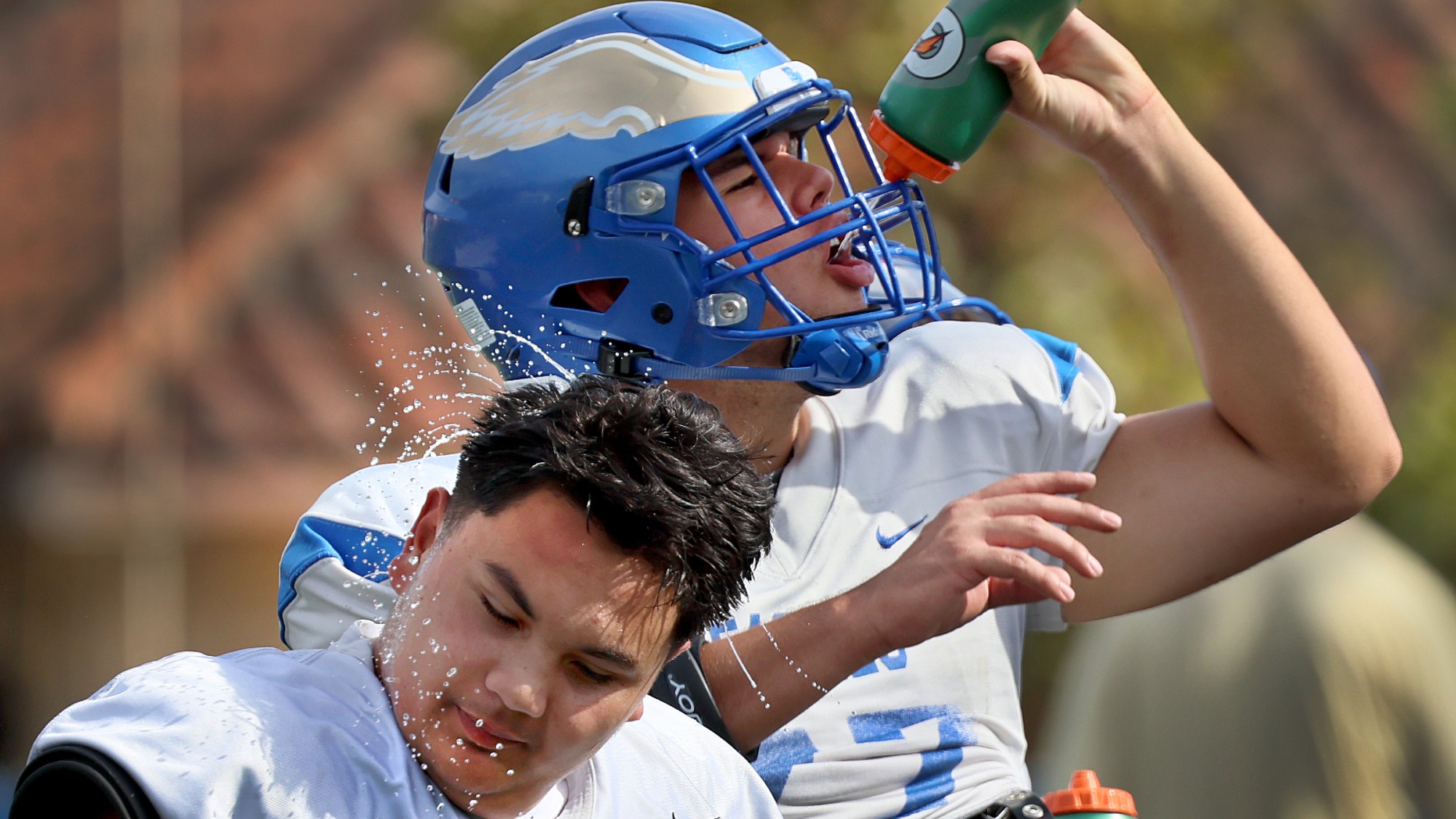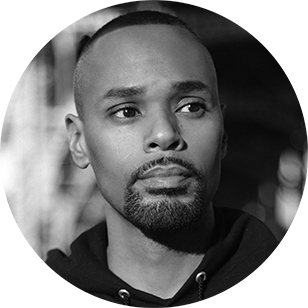Biden is failing Black Americans. Here's what he could do better.
The president said he had our backs. He has a funny way of showing it.


A free daily email with the biggest news stories of the day – and the best features from TheWeek.com
You are now subscribed
Your newsletter sign-up was successful
President Biden recently said the nation is "headed in the right direction" with its pandemic response but stressed it was "essential" that the 66 million Americans who remain unvaccinated get their COVID-19 shots.
"Now's not the time to let up," Biden added. "We have a lot more to do."
I wish Biden had the same urgency about his presidency in general, which is too early to doom completely but appears in trouble nonetheless. Specifically, he must confront the earned perception that he is taking a lot of his most ardent supporters for granted.
The Week
Escape your echo chamber. Get the facts behind the news, plus analysis from multiple perspectives.

Sign up for The Week's Free Newsletters
From our morning news briefing to a weekly Good News Newsletter, get the best of The Week delivered directly to your inbox.
From our morning news briefing to a weekly Good News Newsletter, get the best of The Week delivered directly to your inbox.
Biden's average approval rating has plunged since late June — and the dip spans the political spectrum. More concerning is Biden showing signs of weakness among key Democratic constituencies: Blacks, Latinos, women, and young people. Pew Research Center polls released late last month revealed Biden's approval rating among Black Americans fell from 85 percent in July to 67 percent in September, while also falling 16 points among Hispanics and 14 points among Asians.
Plenty of this can be rightly attributed to a pandemic that is still not under control and the consequences of that — such as a battered supply chain and the inflation that comes along with it. To the credit of Biden, he is trying to alleviate some of those supply chain problems, but experts say much of it is ultimately out of his hands, at least as far as Christmas is concerned. He'd be smart to turn his focus to things he can fix, things could make meaningful change for many of his most valuable constituents, and Black Americans specifically.
As a candidate, Biden named systemic racism as one of the major crises facing the nation, and in doing so, assured Black voters he would be forceful in making things more equal in America for Black people.
"You've always had my back, and I'll have yours," Biden promised.
A free daily email with the biggest news stories of the day – and the best features from TheWeek.com
His campaign's plan for Black America, titled "Lift Every Voice," an audacious nod to the Negro National Anthem "Lift Every Voice and Sing" penned by James Weldon Johnson, says, "Joe Biden knows that African Americans can never have a fair shot at the American Dream so long as entrenched disparities are allowed to quietly chip away at opportunity." Two weeks into his administration, while signing four executive orders relating to the issue, Biden declared: "We need to make the issue of racial equity not just an issue for any one department of government; it has to be the business of the whole of government."
His administration has a lot on its plate, but promises are promises. And so far, he isn't keeping them.
Indeed, it was not lost on some of us that Biden pleaded with more Americans to be vaccinated on what should have been George Floyd's 48th birthday. But the George Floyd Justice in Policing Act — which would have ushered in police reform — died after a bipartisan group was unable to find a compromise.
While it's true that Biden publicly pushed to have this legislation passed before the anniversary of Floyd's death, and Republicans are the ones who rejected plans proposed by Democrats, I was still put off by White House Press Secretary Jen Psaki's flippant response to a question on its failure. "The Black agenda is bigger than voting rights and bigger than the George Floyd Police and Justice Act," she said in a press briefing. Sure, but there are plenty of other issues where the administration is failing Black and brown Americans, too.
Congress has failed to pass a voting rights law despite the ongoing, state-by-state assault on our electoral process. Outside of a July speech on voting, Biden hasn't used his platform to drill into the American conscience that voting rights are under attack. And Biden refuses to push the Democratic-controlled Senate to amend if not flat out kill the filibuster over voting rights. When pressed on this, Pskai's response was essentially to shift blame from Biden to Congress. "You need 50 votes to change the filibuster," she reminded reporters. "You also need the majority of votes to pass legislation into law." True, but Biden has demonstrated with his push for vaccines that he has no issue using his power as president to influence the public. Why not use it to pressure Congress to kill the filibuster and get something meaningful done?
And I imagine millions of Black Americans — along with any decent, non-bigoted voter — might actually be moved by a Justice Department prosecuting former President Donald Trump and his administration for their long list of sins committed during those terrible four years.
Or perhaps Biden can fight more for funding for historically Black colleges and universities and change the minds of folks like House Speaker Nancy Pelosi about debt cancellation — two moves that could easily make real tangible change for Black Americans. And he could work to save the Post Office, home of plenty of Black middle class workers. Instead his administration abandoned the push for a $15 minimum wage back in March, a policy that, if enacted, would have significantly helped many of America's minorities.
While Biden has admitted that his reconciliation bill will likely be smaller than the $3.5 trillion as designed, where he decides to allow cuts will speak to his commitment to Black voters. "This would be the biggest racial justice bill in generations," Hawaii Sen. Brian Schatz told Politico. But that's only if initiatives like funding for Black colleges, pay bumps for home care workers, and red-state Medicaid expansion survive the negotiation process.
Racial equity can only be reached by giving Black people real equity. If Biden really has Black Americans' backs, he has a funny way of showing it.
Michael Arceneaux is the New York Times-bestselling author of I Can't Date Jesus and I Don't Want to Die Poor.
-
 Democrats push for ICE accountability
Democrats push for ICE accountabilityFeature U.S. citizens shot and violently detained by immigration agents testify at Capitol Hill hearing
-
 The price of sporting glory
The price of sporting gloryFeature The Milan-Cortina Winter Olympics kicked off this week. Will Italy regret playing host?
-
 Fulton County: A dress rehearsal for election theft?
Fulton County: A dress rehearsal for election theft?Feature Director of National Intelligence Tulsi Gabbard is Trump's de facto ‘voter fraud’ czar
-
 The ‘mad king’: has Trump finally lost it?
The ‘mad king’: has Trump finally lost it?Talking Point Rambling speeches, wind turbine obsession, and an ‘unhinged’ letter to Norway’s prime minister have caused concern whether the rest of his term is ‘sustainable’
-
 The billionaires’ wealth tax: a catastrophe for California?
The billionaires’ wealth tax: a catastrophe for California?Talking Point Peter Thiel and Larry Page preparing to change state residency
-
 Bari Weiss’ ‘60 Minutes’ scandal is about more than one report
Bari Weiss’ ‘60 Minutes’ scandal is about more than one reportIN THE SPOTLIGHT By blocking an approved segment on a controversial prison holding US deportees in El Salvador, the editor-in-chief of CBS News has become the main story
-
 Memo signals Trump review of 233k refugees
Memo signals Trump review of 233k refugeesSpeed Read The memo also ordered all green card applications for the refugees to be halted
-
 Has Zohran Mamdani shown the Democrats how to win again?
Has Zohran Mamdani shown the Democrats how to win again?Today’s Big Question New York City mayoral election touted as victory for left-wing populists but moderate centrist wins elsewhere present more complex path for Democratic Party
-
 Millions turn out for anti-Trump ‘No Kings’ rallies
Millions turn out for anti-Trump ‘No Kings’ ralliesSpeed Read An estimated 7 million people participated, 2 million more than at the first ‘No Kings’ protest in June
-
 Democrats: Harris and Biden’s blame game
Democrats: Harris and Biden’s blame gameFeature Kamala Harris’ new memoir reveals frustrations over Biden’s reelection bid and her time as vice president
-
 ‘We must empower young athletes with the knowledge to stay safe’
‘We must empower young athletes with the knowledge to stay safe’Instant Opinion Opinion, comment and editorials of the day
